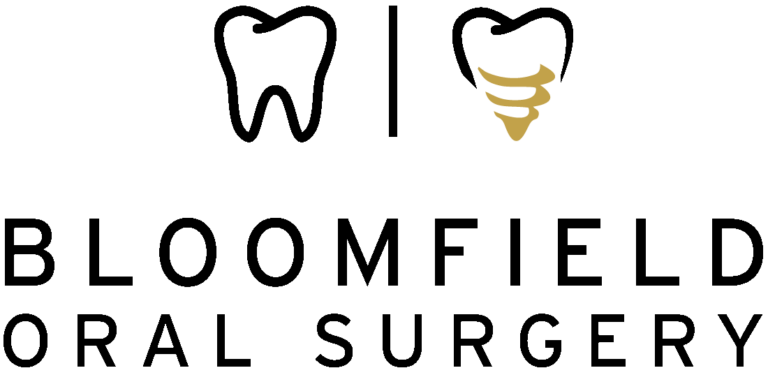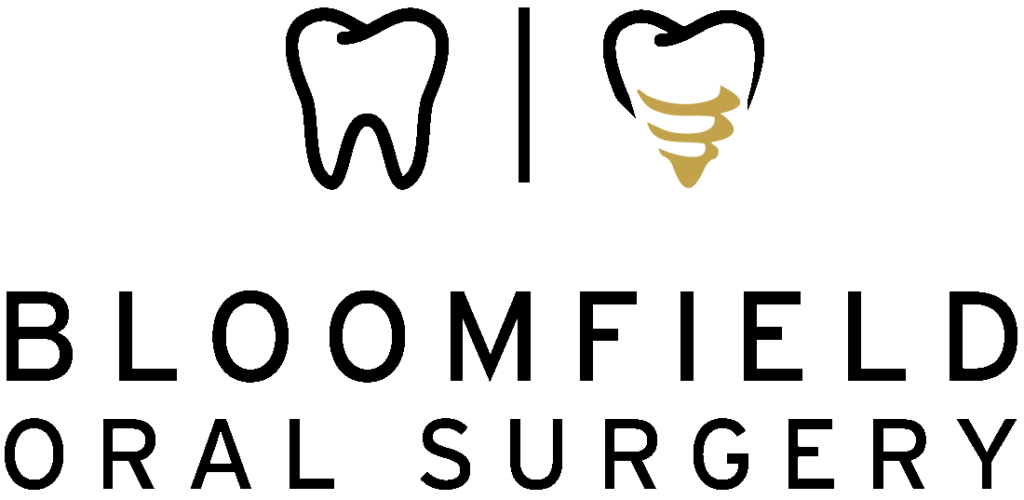Facial trauma encompasses any injury to the mouth, face, or jaws. These injuries can be physically and emotionally distressing, given the face’s crucial role in breathing, speaking, and overall appearance. At Bloomfield Oral Surgery, our primary objective is to provide prompt and expert care to address and rectify facial traumas efficiently.
Symptoms of Facial Trauma
- Swelling or bruising on the face
- Broken or dislocated jaw
- Difficulty in opening and closing the mouth
- Misaligned teeth
- Cuts or disruptions inside the mouth, on the lips, or on the face
- Broken or avulsed teeth
- Changes in vision or eye injuries
- Nasal obstruction or deformities
Addressing Facial Trauma: Immediate Care and Long-Term Implications
Facial trauma, encompassing a range of injuries to the mouth, face, or jaws, is a critical medical concern due to its potential to disrupt vital functions. These injuries can significantly impact basic activities such as breathing, eating, and speaking, often causing immediate discomfort and distress. Moreover, when left untreated, facial trauma can result in various functional and cosmetic complications. Untreated injuries may lead to prolonged pain, misaligned teeth, and difficulties in jaw movement, thereby hindering daily life activities. Timely medical attention, provided by specialists like Dr. Forgach and Dr. Lehal at Bloomfield Oral Surgery, is essential for immediate pain relief and to mitigate the risk of future complications.
Addressing facial trauma promptly minimizes potential long-term health issues and cosmetic concerns. These injuries can extend beyond immediate discomfort, potentially affecting an individual’s quality of life if not properly managed. By seeking timely medical intervention, patients can ensure that their injuries are addressed comprehensively and effectively, reducing the risk of future complications and the need for more extensive treatments.
Treatment Process
- Appropriate Setting of Care: Depending on the type of trauma that has occurred, you may need to be evaluated in a hospital emergency room before being seen in our office. We are happy to guide you to the appropriate setting for your care.
- Assessment and Diagnosis: Initial evaluation by Dr. Forgach or Dr. Lehal to determine the extent of the injury.
- Pain Management: Administering pain relief to ensure the patient’s comfort.
- Fracture Treatment: This might involve setting the bone, wiring jaws, or even surgical intervention, depending on the injury’s nature.
- Soft Tissue Repair: Stitching or suturing of cuts and open wounds.
- Dental Treatment: Repairing broken, cracked, or avulsed teeth, which may involve dental implants or other procedures.
- Rehabilitation: Recommendations for physiotherapy or exercises to restore full function and movement, if necessary.
Proactive Steps to Prevent Facial Trauma
While it may not always be possible to predict or prevent every instance of facial trauma, there are proactive measures individuals can take to reduce their risk of such injuries. One fundamental step is ensuring the use of safety equipment such as seatbelts and protective gear, especially during high-risk activities or sports. These precautions can substantially minimize the impact of accidents and protect the face from severe injury. Additionally, avoiding physical altercations and conflicts can also play a significant role in reducing the likelihood of facial trauma. Individuals can avoid situations that might lead to injuries by seeking peaceful resolutions and maintaining personal safety.
Embracing Hope in Facial Trauma Recovery
Facial trauma recovery holds great promise, thanks to the dedication of medical experts and the ongoing advancements in treatment approaches. By seeking immediate care and taking advantage of cutting-edge techniques, patients can anticipate minimal lasting effects and an expedited return to their normal routines. The future of facial trauma treatment is marked by optimism and an unwavering commitment to ensuring the best possible outcomes for patients facing these challenges.
Frequently Asked Questions
What should I do if I’ve suffered facial trauma?
If you’ve experienced facial trauma, seeking medical attention is crucial. Contact our office to determine the appropriate setting of care. Our experts, Dr. Forgach and Dr. Lehal, will assess your condition and provide the necessary treatment.
Can facial trauma affect my oral health?
Yes, facial trauma can impact oral health, potentially causing jaw, teeth, or soft tissue injuries. Timely treatment from oral surgery specialists like Dr. Forgach and Dr. Lehal is essential to address these issues.
How long does recovery from facial trauma treatment typically take?
The recovery time varies depending on the nature and severity of the trauma. Our experts will provide a personalized recovery plan and closely monitor your progress to ensure the swiftest possible recovery.
Your Journey to Facial Trauma Recovery
If you or a loved one has experienced facial trauma, don’t delay seeking expert care. Dr. Forgach and Dr. Lehal at Bloomfield Oral Surgery are here to guide and support you through the healing process. Contact us today to schedule a comprehensive consultation, and let us pave the way for your swift and thorough recovery.


